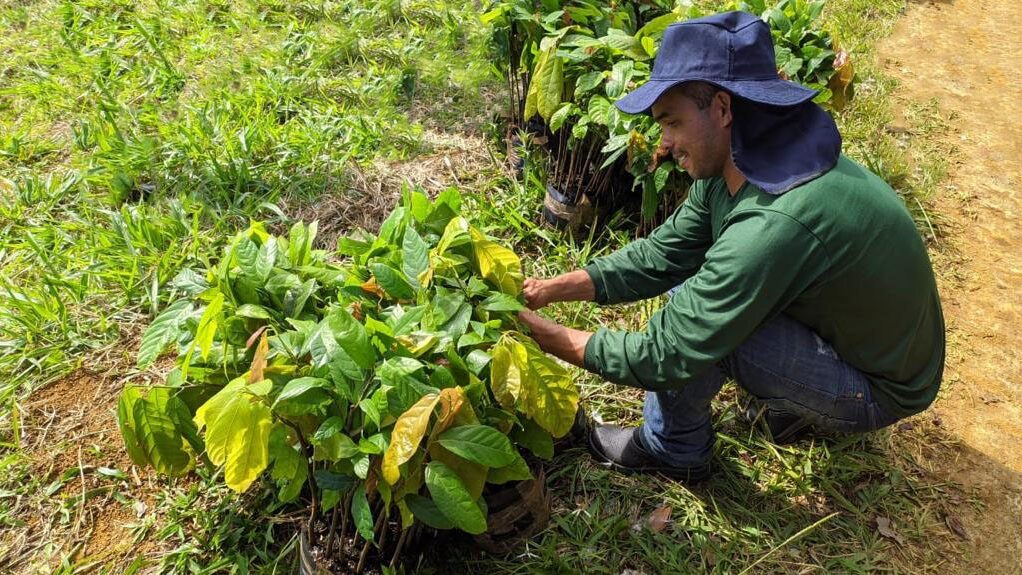Company is advancing in its mission to restore sites, contributing to Vale’s 2030 Forest Goal through agroforestry systems that include cocoa and banana plantations

Belterra, one of Fundo Vale’s partners in delivering Vale’s 2030 Forest Goal, has made major progress in restoring sites, helping improve ecosystems and promoting sustainability through agroforestry systems during the most recent planting season. Over the last few months, the company has recovered 1,202 hectares of land in partnership with local producers by growing cocoa and bananas.
The agroforestry systems used by Belterra are based on the integration of trees and agricultural crops, creating a biodiverse and productive environment. Planting cocoa and bananas, in particular, has proven to be highly effective. Cocoa, a commercially valuable crop, adapts perfectly to agroforestry systems, offering shade and protection to the soil. In turn, rapidly growing banana plants help stabilize the soil and provide a quick and continuous harvest.
“We are achieving significant results in our site restoration projects thanks to the support of partners like Fundo Vale. We expect to expand our work to drive innovation, continuous improvement of practices and positive social and environmental impact in the regions where we operate,” says Valmir Ortega, the CEO of Belterra.
Lucas Amorim, the owner of Fazenda Ita, a farm in Pará, has set aside almost 100 hectares to implement an agroforestry system in partnership with Belterra. Previously, this area was used for pasture, which resulted in soil degradation and loss of biodiversity. Lucas decided to use the area to plant fruit trees, native plants, timber species and interspersed crops. In the first two years, the plan is to grow bananas, cassava or corn while waiting for the cocoa and açaí to start bearing fruit, which happens after three years.
“This practice offers significant benefits for the environment, including improved soil, microclimate and biodiversity, as well as greater resilience to climate change. I joined this initiative because I was sure that the project closely aligns with my personal values, especially in relation to the restoration of degraded areas and the promotion of sustainable environmental practices. From the outset, I realized that I could play an active and meaningful role in this project, which gave me a new perspective on my relationship with the land and the environment. I understood that it wasn’t just about planting trees, but about creating a healthy ecosystem that would benefit local biodiversity and the surrounding community,” he says.
